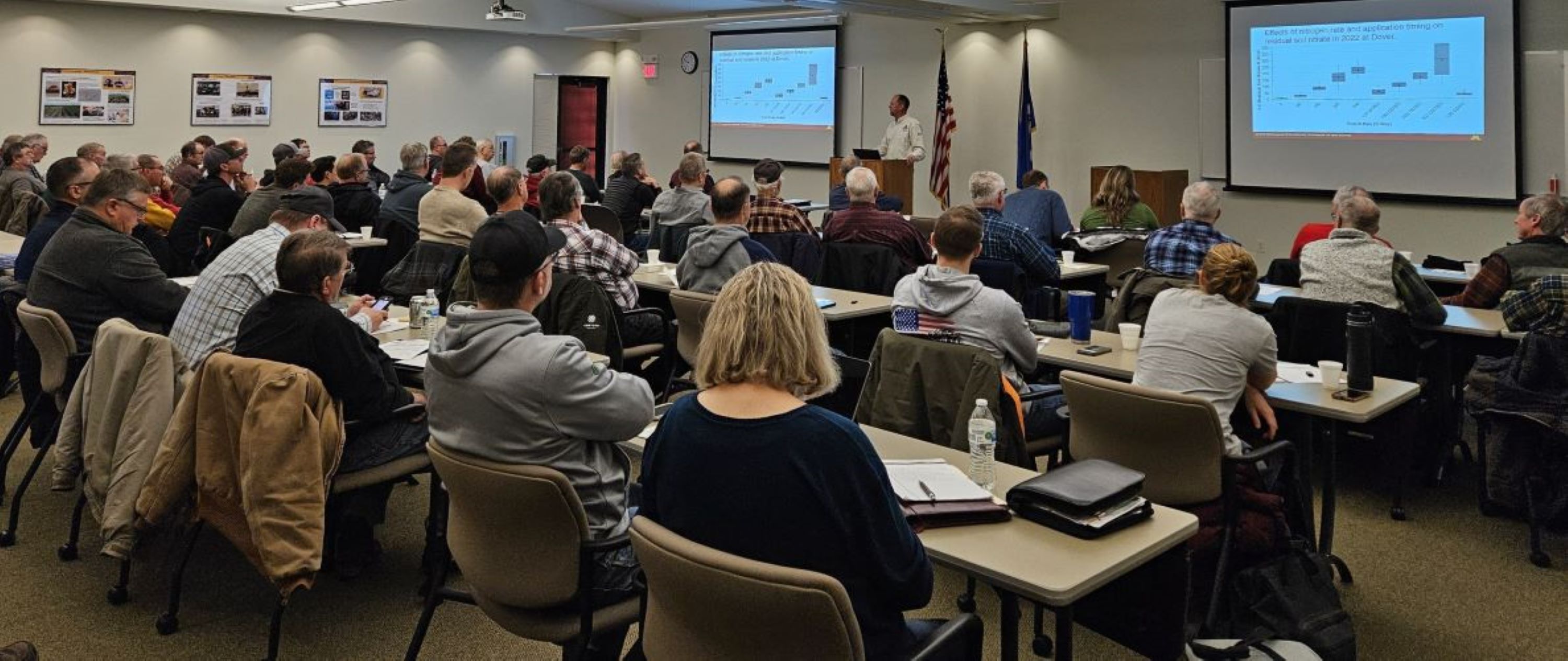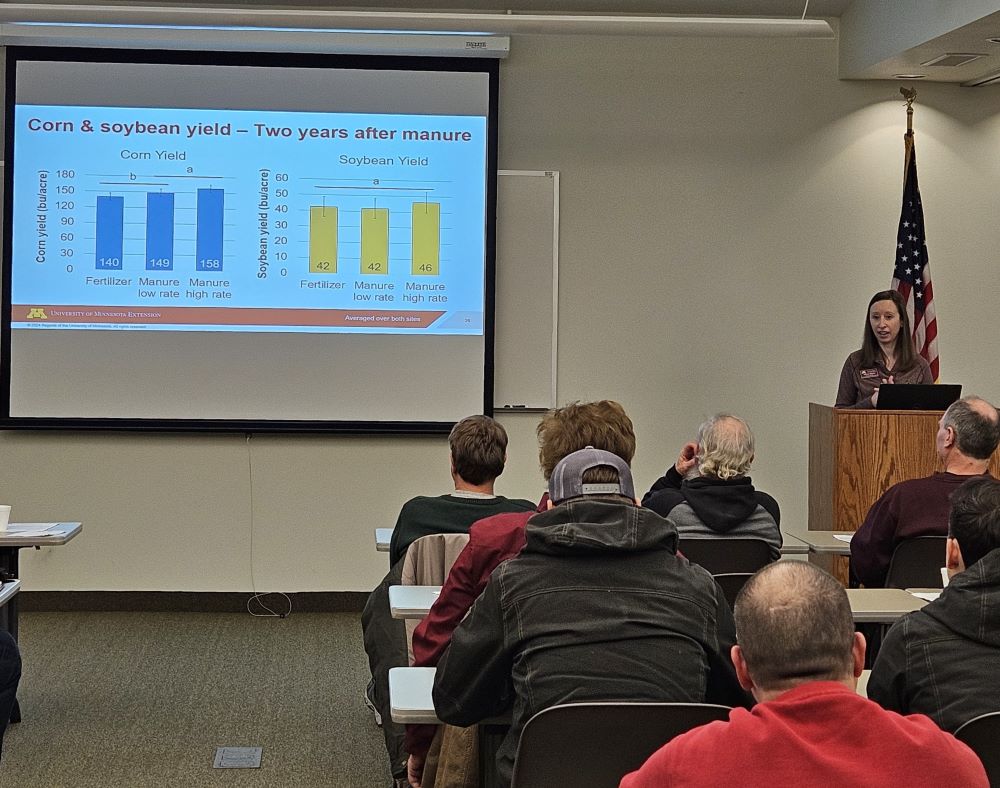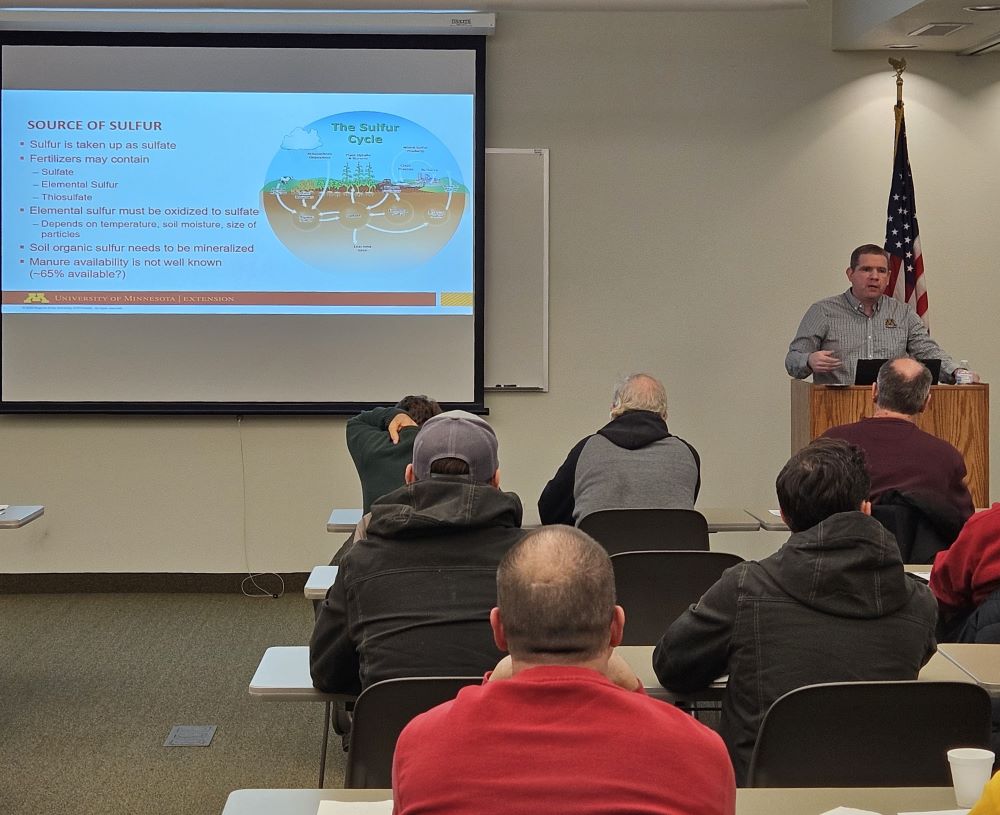
On a sunny and frosty day in January, the UMN Southern Research and Outreach Center (SROC) in Waseca, MN was the destination of choice for farmers, industry professionals, researchers, and local community members. The annual Winter Crops Day was held on January 11 with over 60 participants from a variety of backgrounds, all interested in hearing about the latest University research in row crops.
The timing of this event is deliberate; information shared and questions raised during the Winter Crops Day could impact decisions made by area farmers and producers, or inform new research conducted by SROC or UMN Extension scientists. This feedback loop between producers and researchers is a key part of outreach events held in Greater Minnesota, as described by Melissa Wilson, UM Manure Nutrient Management Specialist and one of the presenters during the event.
“One of the main things with Extension is that we do research so that we can answer questions that farmers have. Sometimes [the research] generates more questions, so it's this really nice circular process where our research is informed by what farmers actually want to know and then, hopefully we can answer questions that farmers want to ask. Coming to these outreach days helps us present the information that we found but also get feedback and tailor our new research questions going forward,” Wilson stated.

The Winter Crops Day 2024 covered research related to application timing/rates for nitrogen and sulfur, updates on manure application and runoff concerns, and critical periods of solar radiation for soybean growth as it relates to planting dates and typical Minnesota summers. The research that drew keen interest from attendees included mid-season application of nitrogen and sulfur for corn production and weed management in corn and soybean fields.
However, the research updates weren’t the only reason to attend. During the lunch hour and breaks, many people turn to their neighbors to chat about their own farms and operations. Others find researchers who present in order to ask specific questions: can they apply sulfur directly into strip tillage rows, should they layer nutrient applications to prevent leaching, and more. While many of these questions are answered by attending UMN researchers, some questions haven’t been answered by previous research and the interest from these individuals prompts discussions amongst scientists.
“As Melissa said, it’s really then looking at some of the research questions that maybe we didn’t think about that we could address further on. [...] It’s kinda nice when we’re in the winter season getting towards spring, maybe some things that we hadn’t thought about that we could be looking at for future projects,” said Dan Kaiser, UM Extension Nutrient Management Specialist and another presenter at the Winter Crops Day event.

In a way, the Winter Crops Day provides local residents in agriculture greater tools to handle the upcoming growing season while also giving UMN researchers new ideas and questions. For Kaiser, conducting research and interacting with agricultural professionals across the state is a main draw of attending these outreach events as a presenter.
“It’s always nice coming out to some of these areas because it’s one of the advantages of the ROC system in Minnesota: the diversity of soils and climates we have across [the system] that we can’t replace one with another. So it’s nice to get out to all these locations and see the difference and some of the issues that these growers, consultants, retailers - people who are in agriculture in general - are dealing with when it comes to nutrient management,” Kaiser continued.
SROC would like to extend our gratitude to the MN Soybean Growers Association and the MN Corn Growers Association for financially supporting the event and allowing SROC to provide registration FREE of charge.
